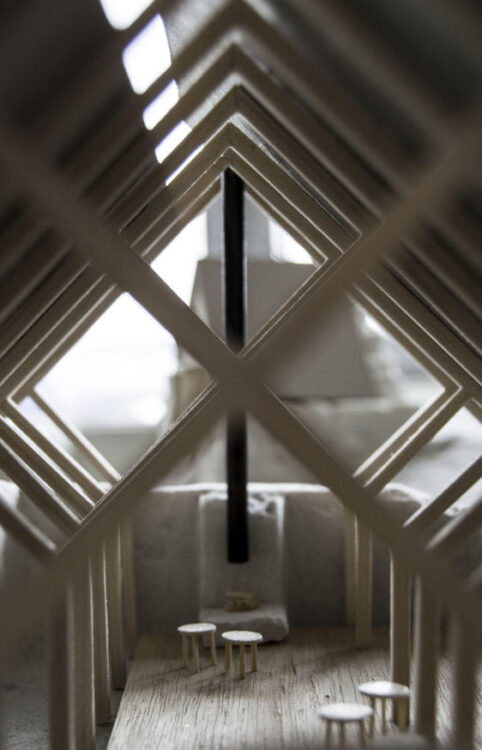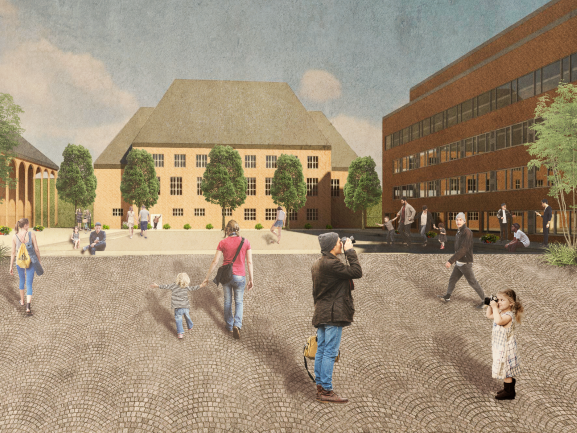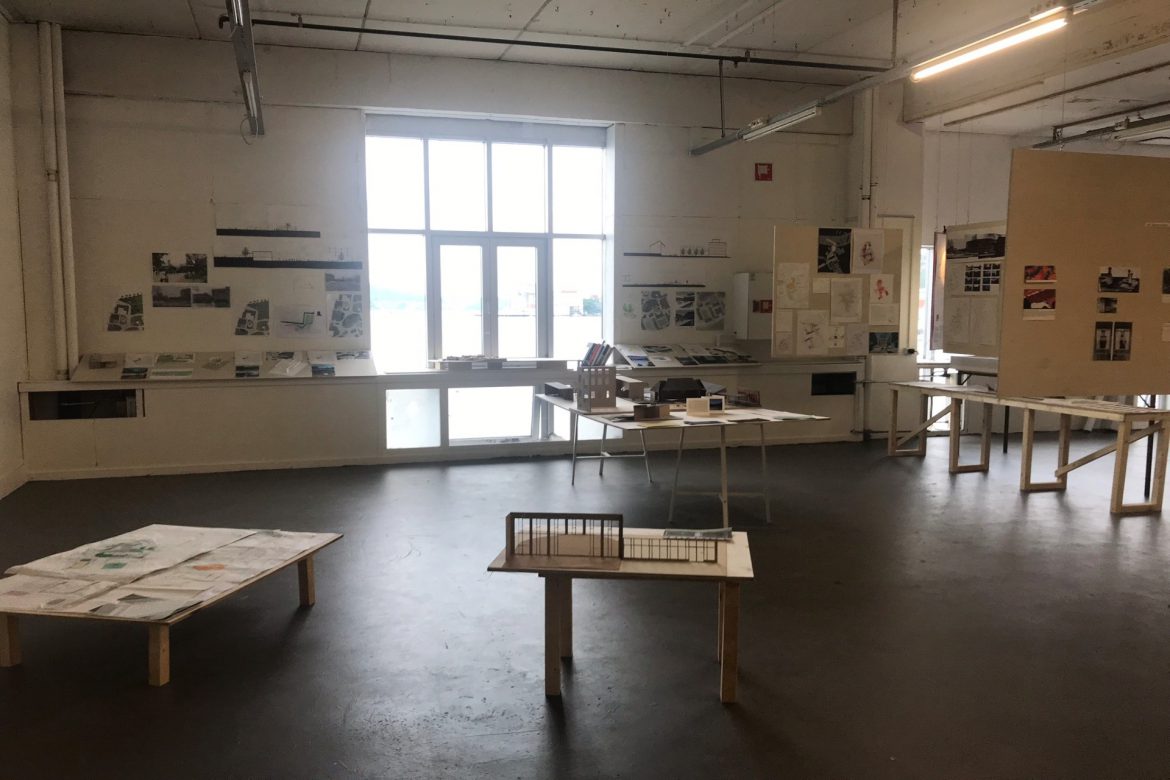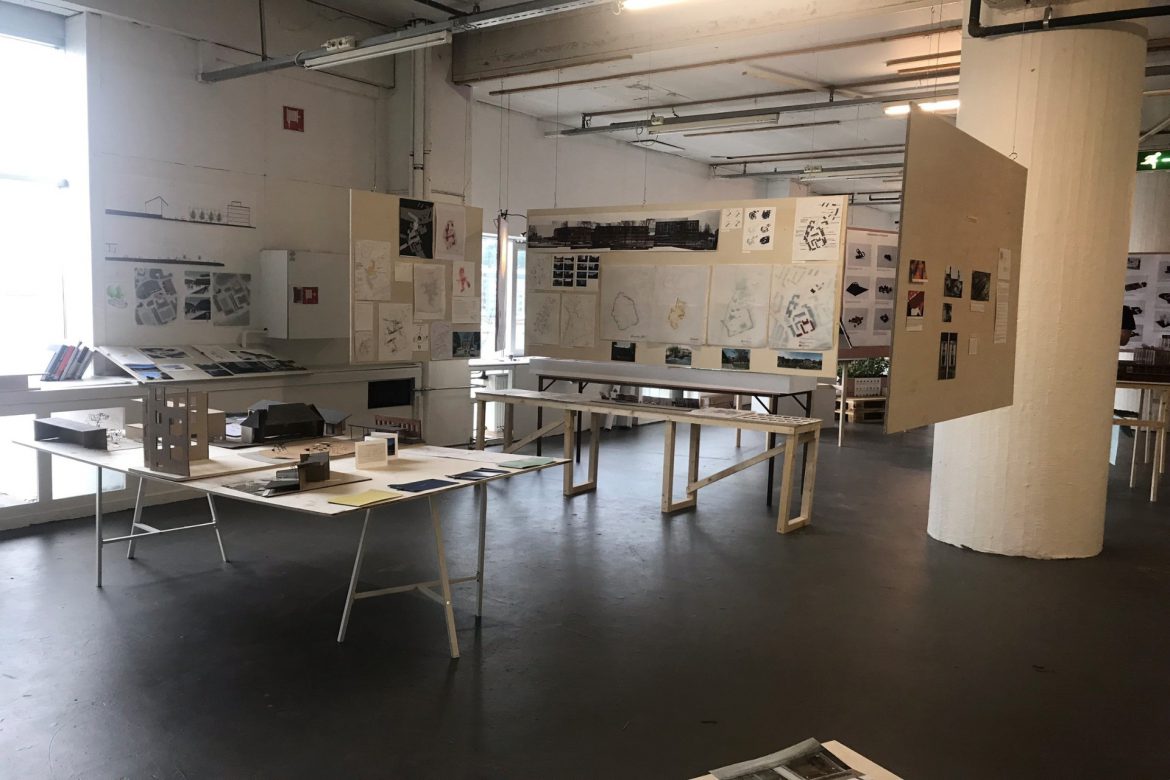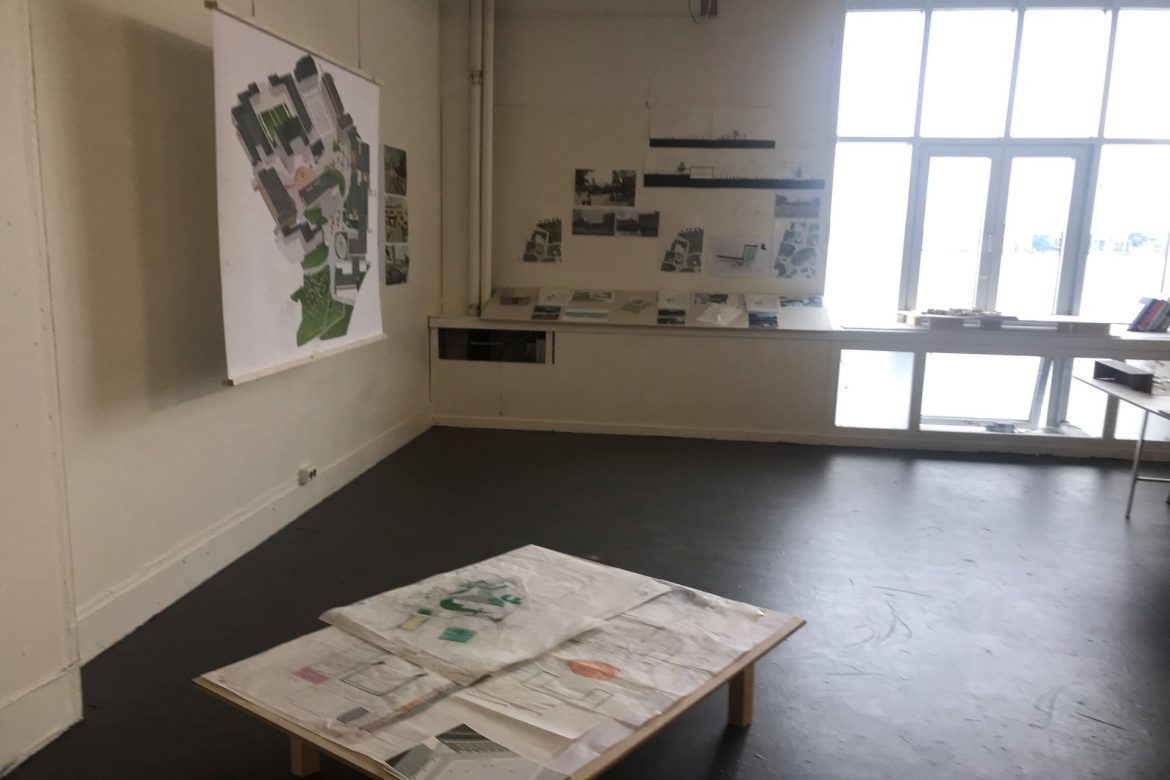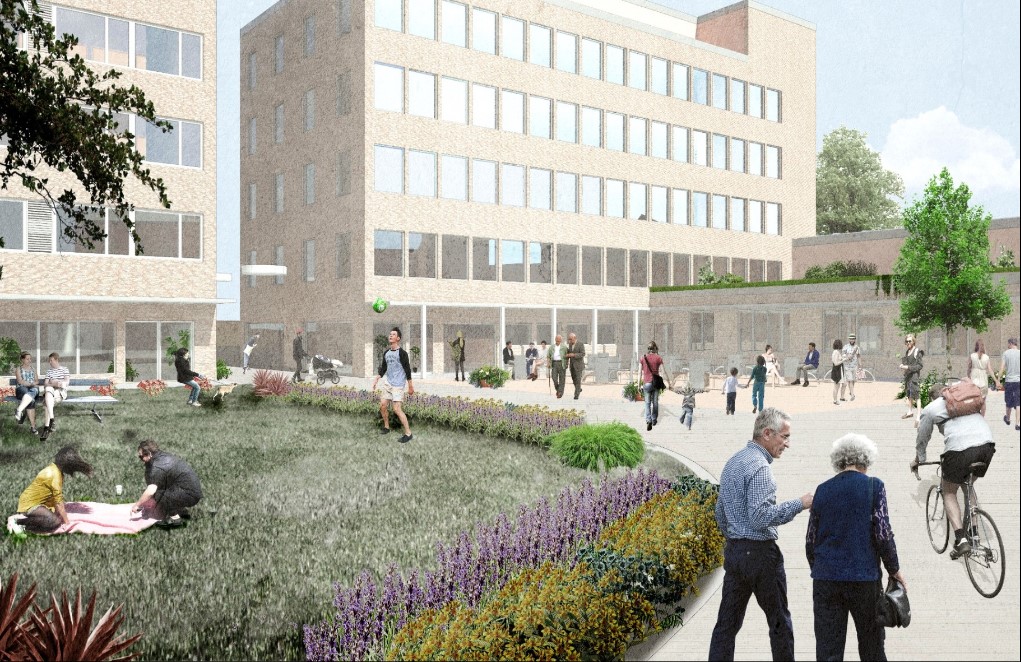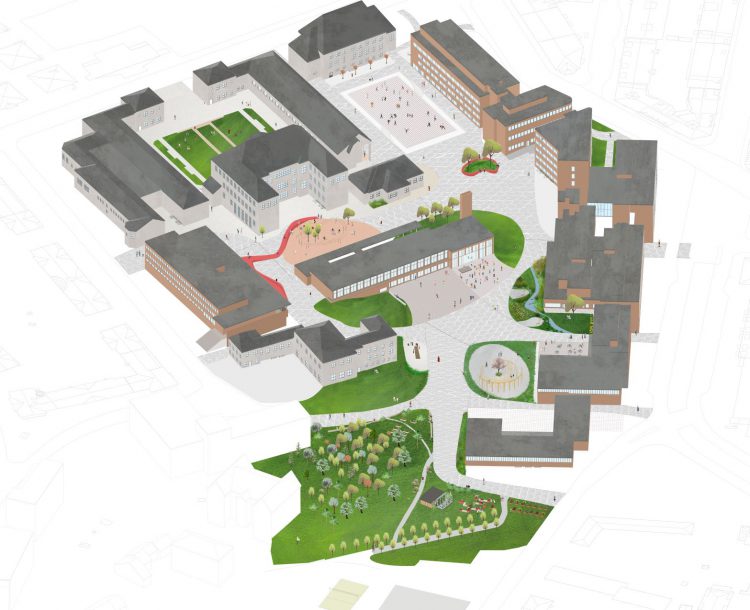
This project started as an investigation on what feminism in architecture is, and how this approach will benefit for people in public spaces. Knowing that the veterinary school in Oslo is going to move out of its current buildings, what will happen to the space when 600 jobs and 700 students disappear from the place? Will it be dead during working hours, and after 8 pm? How can this place still be active and used by all kinds of people? The place is today experienced as a closed area in the city, where the area is unclear on whether it is private or public. How can this place offer a new vitality and open up to its surroundings?
After my research on the topic, there are certain issues that appear frequently. Men and women do experience the city different, and women do more often choose a route according to whether it is safe and enjoyable or not. With feminism in architecture as a starting point, I wanted to use it as a tool on how it could affect and improve public spaces. During my process, it became more important for me to see how this way of planning could make a safe and democratic space. It is not about making everybody do the same, or plan for one group of people, but finding space for different activities on different terms and needs. In this way, other terms like “fair shared city” or “gender mainstreaming” fits better and takes the feminist part out of the equation as it has shown to be different opinions to what it really is.
During my research there are some key points I have taken with me into my project.
Movement – By bringing people to the place through the principles of passage –destination – attraction. Where the passage is the route, how is it to go to the spaces? Destination stands for what you can do there –e.g. you can play boccia. The last part, attraction; what makes people want to stop and watch is activities and other people, that makes them want to linger for a period of time.
Flexibility of use -The flexibility of using the space is based on the needs and interest that different people have. This includes the seasons as well.
“Bluegreen” structure» green structure is calming people and gives them a place to be while it brings in the biodiversity. By reintroducing the closed watercourse and expanding the green areas, these places can be used by all and will also remove noise and dust from traffic.
Inviting/Accessibility – it is important to show that this area is welcoming for everybody. The entrance points should clearly show that the space is public. By opening the facades and removing certain buildings that creates dead-ends it will create clear sightlines and create a visual connection.
Shelter – The introduction of different types of shelter will make it possible to use the space in different times of the year and with varying weather conditions. Adding trees for the soft shadow, roof for rain or a wall for the wind.
“Eyes on the street” – The transition between the inside and outside will create a possibility to see what is happening both inside and outside as well as keeping the eyes on the street. More eyes on the street creates a safer environment for it’s users.
Centering -To have a clear visual sight towards the center will give a logic to the space and make it easier to navigate around the place. By strengthening what is already read as a center and adding programs that will work well for all kinds of people.
Diversity – It is important to have the diversity of people and different things to do without necessary having to pay money for staying. This will attract people with different interests. But also make sure that there is a diversity of programs so that it is open on different times of the day. Diversity in green structure will attract birds and insects, but also having certain plants to make sure some blossoms in the spring, and some during the autumn. By having the diversity, it will feel safe and including. A research done by Charles Montgomery shows that people are more friendly and trusting in comfortable and small-scale places.
My project is about creating democratic spaces with a focus on how all kinds of people can fit in to the same space while doing different things. By following these principles, it connects the place in a better way to take care of both the individual and the community
